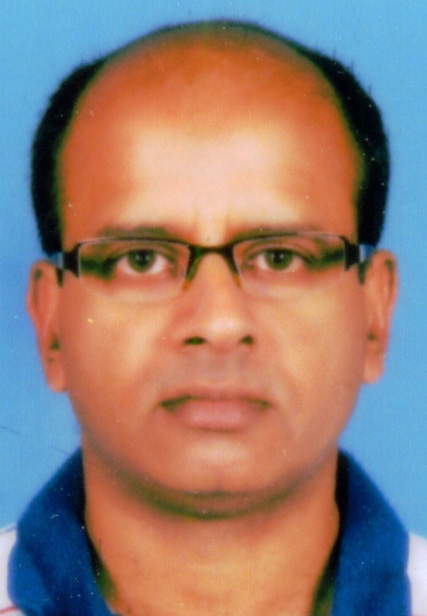Profile
Murali Dharan Bashyam completed his M. Biotechnology from the All India Institute of Medical Sciences, New Delhi in 1991 and PhD in Biochemistry from University of Delhi South campus in 1996. After completing his postdoctoral work from the National Institute of Immunology, Dr Bashyam joined CDFD as staff scientist in 1999. Dr Bashyam’s main research focus is to comprehensively characterize the biology of specific cancer types relevant to the Indian population. He has made seminal contributions to understand an India-specific albeit poorly understood colorectal cancer subtype namely early-onset sporadic rectal cancer. Based on nearly two decades of work on patient-derived samples, he is studying the role of the SWI/SNF chromatin remodelling complex in various cancers. In addition, he is actively involved in INSACOG - the SARS-CoV-2 genome sequencing initiative. Further, he studies disease-causing mutations from genetic disorders to understand their impact on the gene transcript rather than the protein
Current Focus Areas
PAN-India EArly-onset COlorectal Cancer Consortium (PEACOCC): The objectives include identification and characterization of a) driver genetic alterations using exome and RNA sequencing followed by validation through cell line/3D tumor derived organoid/nude mice xenograft models and tissue microarrays as well as b) microbiome dysbiosis using stool samples.
Yin/Yang of chromatin remodelers: Tumor-specific aberrant cytoplasmic localization of tumor suppressive nuclear chromatin remodelers leading to promotion of tumorigenesis is being studied in specific cancer types. Efforts are underway to unravel efficient therapies targeting these novel gain of functions.
Non-canonical nuclear functions of chromatin remodelers: Analysis of role(s) of chromatin remodelers in regulating function of cohesins/condensins, DNA repair, mRNA processing and turnover, is being conducted
SARS-CoV-2 genomics: Whole Genome sequencing of clinical isolates of SARS-CoV-2 is being conducted as part of the ‘INSACOG’ initiative. This activity is being expanded to include sequencing of clinical isolates of the Dengue virus and identification of pathogens causing hospital (ICU) acquired infections.
Zoonoses: A new study to identify novel potential zoonotic pathogens in the north east is to be initiated soon.
Human genetic disorders: Mutation spectrum for several genetic disorders in the Indian population is determined. The current focus is to study mRNA perturbing exonic disease causing mutations.
Selected Publications
Bala, P., Singh, A. K., Kavadipula, P., Kotapalli, V., Sabarinathan, R., & Bashyam, M. D. (2021). Exome sequencing identifies ARID2 as a novel tumor suppressor in early-onset sporadic rectal cancer. Oncogene, 40(4), 863–874.
Animireddy, S., Kavadipula, P., Kotapalli, V., Gowrishankar, S., Rao, S., & Bashyam, M. D. (2021). Aberrant cytoplasmic localization of ARID1B activates ERK signaling and promotes oncogenesis. Journal of Cell Science, 134(4), jcs251637.
Adduri, R. S. R., George, S. A., Kavadipula, P., & Bashyam, M. D. (2020). SMARCD1 is a transcriptional target of specific non-hotspot mutant p53 forms. Journal of Cellular Physiology, 235(5), 4559–4570.
Khursheed, M., Kolla, J. N., Kotapalli, V., Gupta, N., Gowrishankar, S., Uppin, S. G., Sastry, R. A., Koganti, S., Sundaram, C., Pollack, J. R., & Bashyam, M. D. (2013). ARID1B, a member of the human SWI/SNF chromatin remodeling complex, exhibits tumour-suppressor activities in pancreatic cancer cell lines. British Journal of Cancer, 108(10), 2056–2062.
Bashyam, M. D., Chaudhary, A. K., Reddy, E. C., Reddy, V., Acharya, V., Nagarajaram, H. A., Devi, A. R., Bashyam, L., Dalal, A. B., Gupta, N., Kabra, M., Agarwal, M., Phadke, S. R., Tainwala, R., Kumar, R., & Hariharan, S. V. (2012). A founder ectodysplasin A receptor (EDAR) mutation results in a high frequency of the autosomal recessive form of hypohidrotic ectodermal dysplasia in India. The British Journal of Dermatology, 166(4), 819–829.
